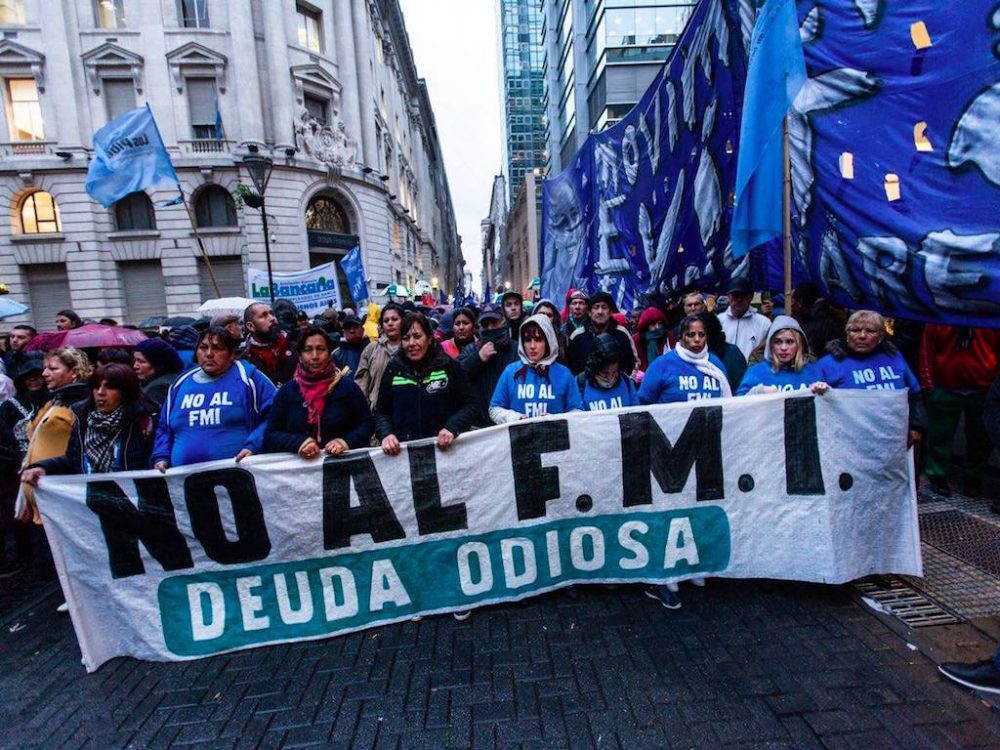
A ordem econômica global atual foi estruturada após o fim da II Guerra Mundial. Nessa época foram criadas importantes organizações internacionais que perduram até os dias de hoje. É importante entendermos seu papel pois elas acabam impactando nos países. Dentre as principais organizações, o Fundo Monetário Internacional (FMI) é um dos mais impactantes na América Latina.
O papel do FMI
O Fundo Monetário Internacional (FMI) é uma organização internacional criada em 1944, com o objetivo de promover a cooperação monetária internacional, facilitar o comércio internacional, promover a estabilidade cambial e ajudar os países membros em situações de crise econômica.
O papel principal do FMI é fornecer empréstimos e assistência técnica para ajudar os países membros a superarem crises econômicas, como crises cambiais ou de balanço de pagamentos. Para receber ajuda do FMI, um país precisa concordar em implementar políticas econômicas e fiscais recomendadas pelo FMI, visando restaurar a estabilidade econômica e evitar futuras crises.
Além disso, o FMI monitora a economia global e fornece aconselhamento econômico e análises para seus países membros, com o objetivo de promover políticas econômicas saudáveis e sustentáveis. Ele também atua como um fórum para a cooperação monetária internacional e promove a transparência e a integridade no sistema financeiro global.
O FMI e a América Latina
O FMI tem desempenhado um papel importante na América Latina ao longo das últimas décadas. A organização tem sido uma fonte frequente de empréstimos para países da região que enfrentaram dificuldades econômicas, como crises cambiais e de balanço de pagamentos.
Os empréstimos do FMI são frequentemente acompanhados de condições e políticas econômicas recomendadas pela organização, que visam ajudar os países a superarem suas dificuldades e alcançarem estabilidade econômica e fiscal. Embora essas condições possam ser dolorosas para os países que as aceitam, elas podem ajudar a restaurar a confiança dos investidores, reduzir as taxas de juros e incentivar o crescimento econômico.
O FMI também desempenha um papel importante na promoção da cooperação e do diálogo entre os países da América Latina. A organização realiza consultas regulares com os governos e líderes empresariais da região, fornecendo análises econômicas e recomendações para políticas que visam melhorar a estabilidade econômica e promover o crescimento.
No entanto, a participação do FMI na região nem sempre foi bem recebida. Em muitos casos, as condições dos empréstimos foram consideradas excessivamente rigorosas, e as políticas recomendadas pelo FMI foram criticadas por aprofundar a desigualdade social e prejudicar os mais vulneráveis. Como resultado, a organização tem enfrentado críticas significativas em toda a América Latina.
O FMI, a Ucrânia, a Argentina e o mundo
Independentemente da posição que possamos adotar em relação à guerra entre Rússia e Ucrânia ou às políticas adotadas pelos governos argentinos e que levaram o país à atual crise econômica e social, é interessante observar os diferentes comportamentos que o FMI tem em relação aos dois países.
A relação entre o FMI e a Ucrânia tem sido complexa e tumultuada ao longo dos últimos anos. A Ucrânia se tornou um dos maiores beneficiários dos empréstimos do FMI, recebendo vários programas de empréstimos ao longo dos últimos anos.
Em 2014, a Ucrânia enfrentou uma crise econômica e política que levou à queda do governo do presidente Viktor Yanukovych. Como parte dos esforços para estabilizar a economia ucraniana, o FMI aprovou um pacote de empréstimos de US$ 17 bilhões para a Ucrânia em 2014.
No entanto, a implementação desses programas de empréstimos tem sido difícil e frequentemente interrompida por tensões políticas e econômicas. Em 2015, o FMI suspendeu temporariamente o programa de empréstimos da Ucrânia depois que o governo ucraniano se recusou a implementar reformas fiscais exigidas pelo FMI.
Em 2019, a Ucrânia recebeu outro programa de empréstimos de US$ 3,9 bilhões do FMI, que visava ajudar a estabilizar a economia ucraniana e apoiar as reformas econômicas. No entanto, a pandemia de COVID-19 e a crise econômica subsequente levaram o FMI a adiar o pagamento de parte desses empréstimos.
Além disso, a relação entre o FMI e a Ucrânia tem sido afetada pelas tensões políticas entre a Ucrânia e a Rússia. O FMI tem pressionado a Ucrânia a implementar reformas econômicas e combater a corrupção, mas esses esforços foram prejudicados por conflitos políticos e econômicos com a Rússia.
Recentemente foram aprovados novos empréstimos ao país com a aprovação de mudanças em suas regras, permitindo o empréstimo a países com “alta incerteza excepcional” (Ukraine to clinch first IMF loan to nation at war – https://www.bbc.com/news/business-65034765). Já para a Argentina, o tratamento não é o mesmo.
Essa diferença no tratamento mostra a necessidade de termos organizações econômicas internacionais mais abertas à participação global, com um sistema de governança mais democrático.
Pós-Doutor em Competitividade Territorial e Indústrias Criativas, pelo Dinâmia – Centro de Estudos da Mudança Socioeconómica, do Instituto Superior de Ciencias do Trabalho e da Empresa (ISCTE, Lisboa, Portugal). Doutor em Relações Internacionais pela Universidade de Brasília (2007). É Diretor Executivo do Mapa Mundi. ORCID https://orcid.org/0000-0003-1484-395X
